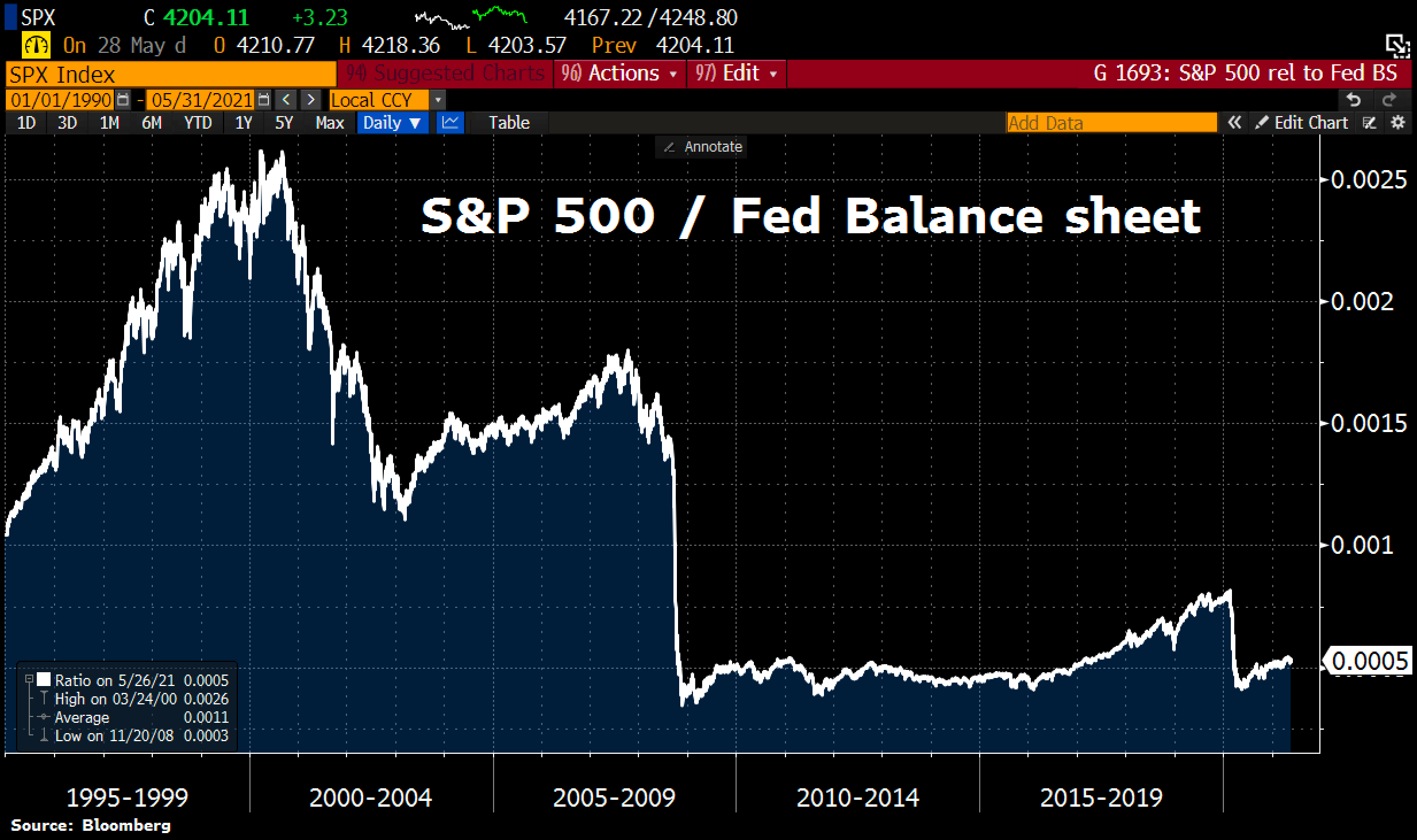Naturally, as stock markets worldwide have been hitting all-time record highs every other week, pundits and experts alike are trembling before the prospect of a material crash being upon us. The pandemic-induced plunge in March of last year reminded us that things that go up can easily go down again, and rapidly so, albeit that those losses have quickly been eradicated during the ensuing months and into 2021.
Fundamentals have given us a reason for concern as well. Price/earnings and price/revenue ratios have moved into historical bubble territories. And every other established indicator, or the ones that have been pushed into the limelight by celebrity investor legends, has long been flashing at an overbought scenario that has historically become an inflection point and culminated in a market crash or at least a very significant correction.
At the same time, we have had to get accustomed to the fact that previous rules may no longer apply to today’s zeitgeist in investing. We are best advised to consider new phenomenons, such as our immense technological advances in most of the Western world and China in particular and demographic developments that have altered investment behaviour. There is a whole new generation of investors growing up that differ entirely in approach and style.
But the key to this sustained equity rally is without a doubt the excess liquidity that central banks have created worldwide. In response to the financial crisis, money has been printed in unprecedented quantity, and the fact that growth patterns have never lived up to their former glories since resulted in this excess liquidity to never be fed into the real economy and slosh around in the system. Pretty much all asset markets have been flooded.
The question is, though, whether this means markets are in bubble territory. In the end, it is all relative, isn’t it? So, if we compare stock market indices across the globe with the amount of excess cash that individual jurisdictions and currency areas have produced, then we might think of stocks as being cheap. When dividing the S&P500 by the Fed balance sheet and looking at the ratio, we will realise that equities trade near all-time lows, at least have never been as cheap in the past 1/4 century.
A massive drop is to be observed about 10 years ago when the market crash coincided with the Fed starting to expand its accommodative monetary policies and introduced QE. Despite the appreciation of indices in the numerator the expansion of the balance sheet in the denominator has perfectly counterbalanced the rise in indices and kept the reading flat and rock-bottom. Another of these resets happened on the occasion of the pandemic-induced crash in Q2 of last year.
However, the strong rebound we witnessed since was again immediately neutralised by the Fed printing 3 trillion dollars in the quarter alone. In other words, in relation to the excess liquidity out there the S&P is as cheap as it hasn’t been in 25 years! This is a similar development as we have in other markets. Take the DAX for example. In relation to the ECB’s balance sheet, the German index has been depressed to all-time lows late last year.
It would probably pan out like this for most jurisdictions and their stock markets in the Western world. So, again, are stock expensive and bubbly? If you view things in the context of monetary policies that are unprecedented in modern history, it will be difficult to heed the advice of the sages who mean well on the basis of their decade-long experiences. But this looks like it’s different and hardly a case for a one size fits all approach.
